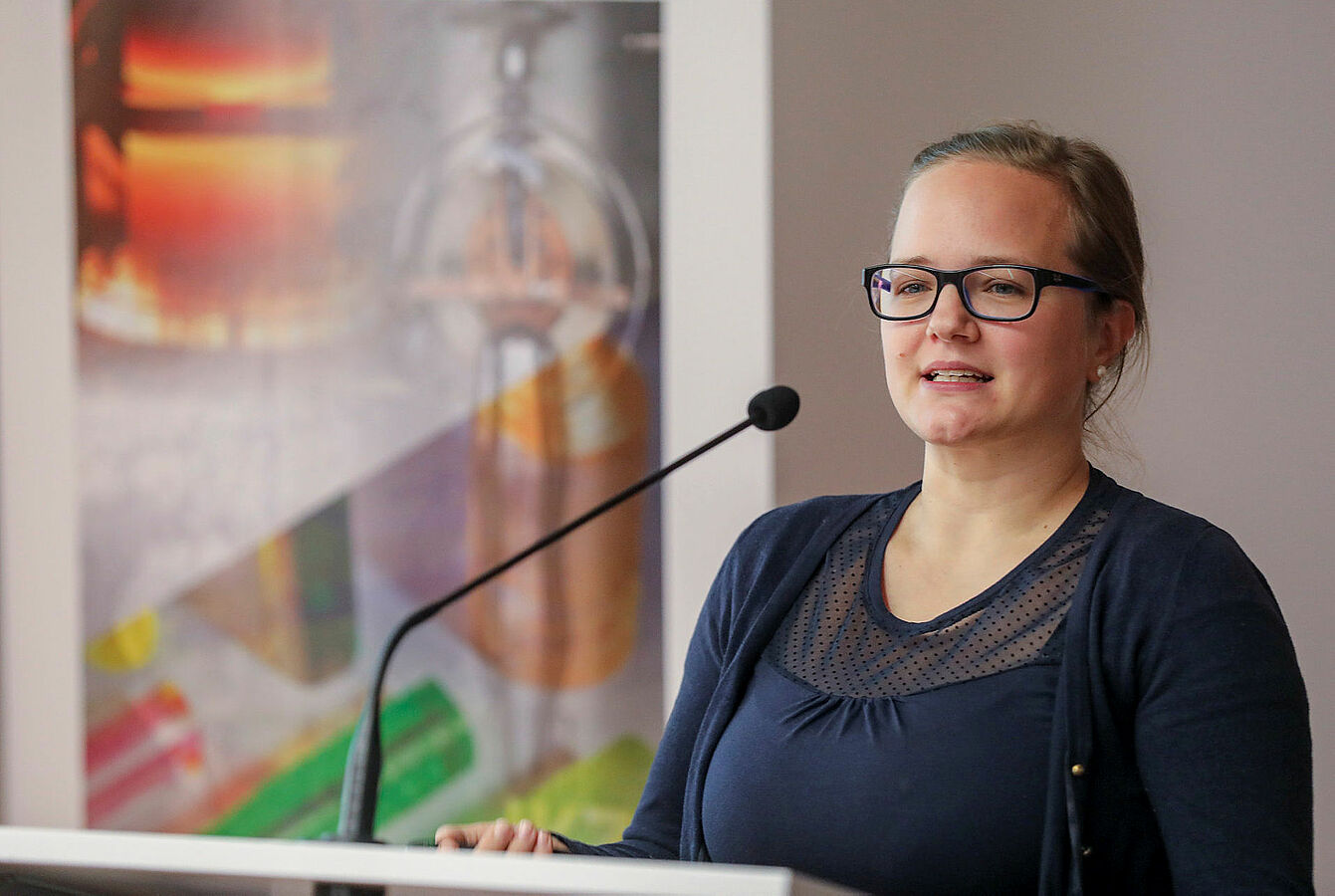Dorothee Braun’s doctoral thesis, which she completed at the Leibniz Institute for Crystal Growth (IKZ), represents an important contribution to the development of ferroelectric materials. The goal is to use ferroelectric materials to replace the lead-based compounds that are currently still found in computer memory and sensors. The Marthe Vogt Award, launched in 2001, is presented to young female scientists active in a field covered by one of the FVB institutes. One of the requirements is that the doctoral thesis is completed at a research institution in Berlin or Brandenburg. The award is worth €3,000.
In actual fact, lead zirconate titanate (PZT), which is toxic, has been banned in Europe since 2006. But due to the lack of alternatives with comparably good properties, the material may still be used. It is deployed, for example, as a storage material in computers and in actuators. Lead-free ferroelectric materials could replace PZT in some applications.
In her doctoral thesis, Dorothee Braun examined the lead-free material potassium sodium niobate (KxNa1-xNbO3). She applied layers of the material to a substrate with slightly different lattice expansion, resulting in tension. In turn, this tension changes properties in the layers. Depending on whether the lattice spacing of the material is larger or smaller than that of the substrate, the material layer is either pressed together or driven apart, creating compressive stress or tensile stress. Dorothee Braun has found out the level of tension required in the material to obtain the desired ferroelectric properties. She reported: “By using different substrates, I am able to set the tension as required. The conditions at IKZ are unique, given that the entire range of oxides are available to us. This enables us to change the lattice spacing of the substrates in relatively small increments.”
IKZ’s Dr. Jutta Schwarzkopf supervised the doctorate. “Dorothee Braun’s work is outstanding. Not only did she characterize the layers, she also performed all the simulations. Her theoretical considerations were highly productive. If something didn’t work out as planned, she always had a new idea for an alternative approach.” Her sound knowledge of physics was one of the determining factors of her creativity.
“It is a great honor to win this award; I am absolutely delighted,” stated Dorothee Braun. “Particularly because our field of research often tends to be viewed as a marginal issue.” She hopes that winning the Marthe Vogt Award will enable her to open doors that may otherwise remain closed to her, being a mother of three young children. In her experience, it is still difficult for young female researchers with small children to climb the career ladder in Germany. “I was really fortunate with my research group. Ms. Schwarzkopf truly supported me and did everything in her power to make it happen.” Dorothee Braun has a clear position when it comes to academic careers: “Research has become so international – the community is in constant exchange at conferences and over the internet, so it really doesn’t matter where I conduct my research. I can do it just as well in Berlin as in the USA.” Despite being unable to meet mobility requirements at the moment, she is nevertheless an avid researcher.
By awarding the prize to Dr. Dorothee Braun, the Forschungsverbund Berlin e.V. pays tribute to an outstanding scientist who tackled a highly challenging topic in her doctorate with confidence.

